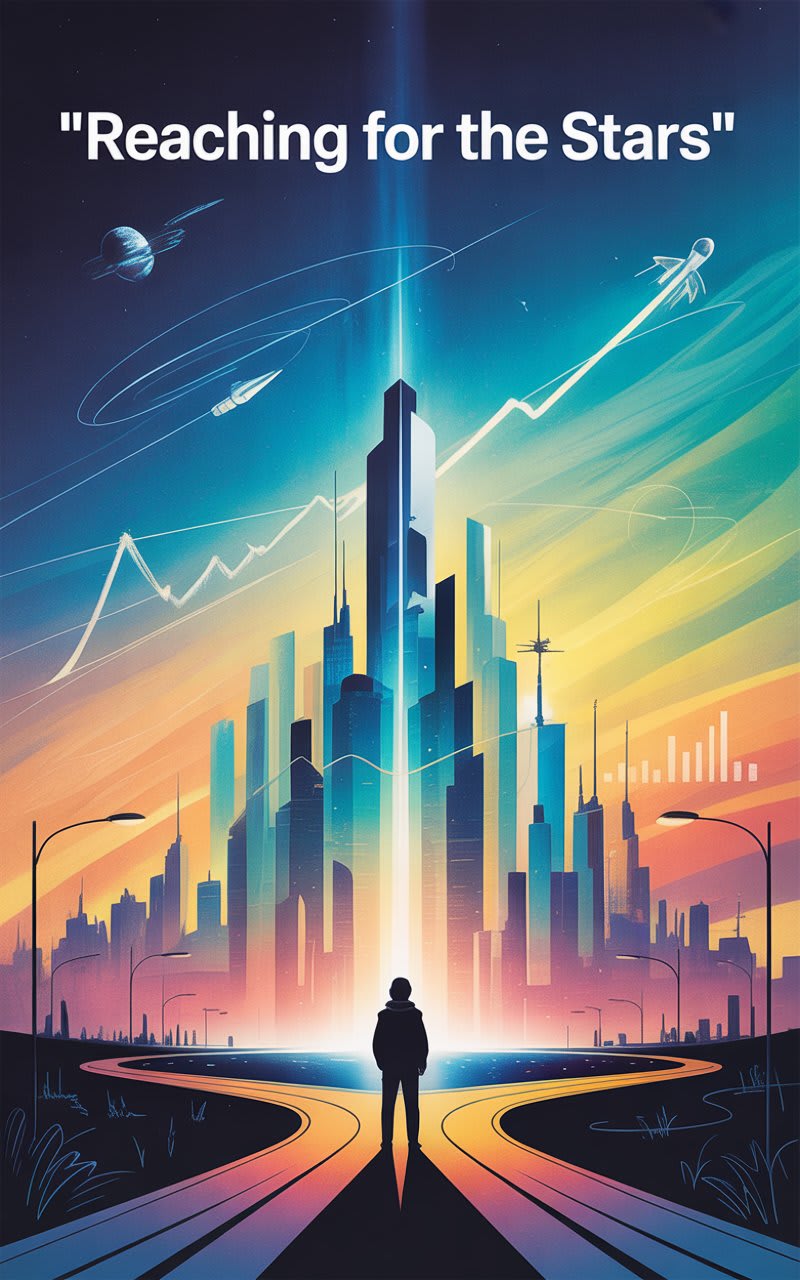When you hear the name Jeff Bezos, what comes to mind? Billionaire. Amazon. Space rockets. Maybe even the world’s richest man. But beyond the headlines and wealth, Bezos built his empire with something far more powerful than money—his mindset.
I wanted to see what would happen if I tried to think like him. Not to build the next Amazon, but to shift the way I approach my own life, work, and goals. What I discovered surprised me.
The Experiment
Bezos once said he makes decisions based on what he calls the “regret minimization framework.” The idea is simple: When you’re 80 years old, will you regret not taking a chance?
That stuck with me. So I decided to live with that question at the center of my choices for a month. Every time I hesitated, every time fear whispered in my ear, I asked: If I don’t do this, will I regret it later?
Day One Thinking
Another Bezos mantra is “It’s always Day One.” At Amazon, that phrase is painted on walls, written in memos, and repeated constantly. Day One means acting like a startup—hungry, curious, never complacent. Day Two, he warns, is decline.
I realized I often slip into Day Two without noticing. I get comfortable, I repeat routines, I play it safe. Thinking like Bezos forced me to approach each day as if I were just beginning—full of urgency and possibility.
Instead of saying, “I’ll do it tomorrow,” I asked myself, “If this were Day One of my dream life, what would I do today?” That question alone pushed me into action.
Customer Obsession—Applied Personally
Bezos credits Amazon’s success to one thing: obsession with customers. He believed if you serve customers better than anyone else, success follows.
I don’t run a global company, but I realized “customers” could mean the people in my life—family, readers, clients, colleagues. Instead of thinking about what I could get from them, I started asking: How can I serve them better?
The results were immediate. Conversations became more meaningful. My work felt more purposeful. And oddly enough, when I focused less on myself, opportunities started showing up.
Making Bold Bets
Bezos is famous for taking risks others won’t. Leaving Wall Street to sell books online seemed insane in 1994. Investing billions in cloud computing before anyone understood it seemed reckless. Even his space company, Blue Origin, was ridiculed at first.
But every bold move expanded his vision. Not all succeeded (remember the Fire Phone?), but failures became stepping stones.
Inspired, I decided to take a bold bet of my own: pitching a project I’d been sitting on for months. Normally, I would’ve waited, polished, or convinced myself it wasn’t ready. This time, I went for it.
Did it work? Not exactly. My pitch was rejected. But here’s the thing—I didn’t feel crushed. I felt alive. I realized rejection is just tuition for future success, a lesson Bezos has embraced for decades.
Lessons Learned From Thinking Like Bezos
After weeks of trying this experiment, here are the biggest takeaways I discovered:
Regret is a powerful compass. Asking, “Will I regret not trying?” cut through fear and excuses instantly. It pushed me to act when I normally would have hesitated.
Every day can be Day One. Treating each day like the start of something great gave me urgency, energy, and focus. Comfort is the enemy of growth.
Service creates success. When I obsessed over helping others instead of worrying about myself, opportunities grew naturally.
Failure is part of the blueprint. Bold bets may fail, but they fuel learning. Without them, you never move forward.
Think bigger than your current limits. Bezos didn’t stop at selling books. He dreamed of reshaping commerce, technology, and even humanity’s future in space. That mindset challenged me to stretch beyond my small goals.
How It Changed Me
I didn’t become a billionaire overnight (spoiler: I probably never will). But that wasn’t the point. Thinking like Bezos wasn’t about copying his money—it was about copying his mindset.
I started tackling projects I’d been postponing. I approached challenges with curiosity instead of dread. I noticed how quickly excuses melted away when I thought in terms of long-term regret. Most importantly, I felt more in control of my choices instead of letting fear run the show.
The Big Picture
Jeff Bezos once said: “We are our choices. Build yourself a great story.”
That line hit me hard. In the end, life isn’t about wealth or titles. It’s about the story you create. Bezos’ story started in a garage, built on big dreams and relentless action.
My story is still being written. So is yours.
And here’s the truth: you don’t need to be the world’s richest man to think like one. You just need courage, clarity, and the willingness to treat every day like Day One.
Final Thought
When I tried thinking like Bezos, I didn’t just see the world differently—I saw myself differently. I realized that success isn’t about luck or genius. It’s about mindset, choices, and persistence.
So if you take anything from this story, let it be this: Ask yourself the Bezos question. At 80 years old, will you regret not trying?
Your answer might just change your life.


